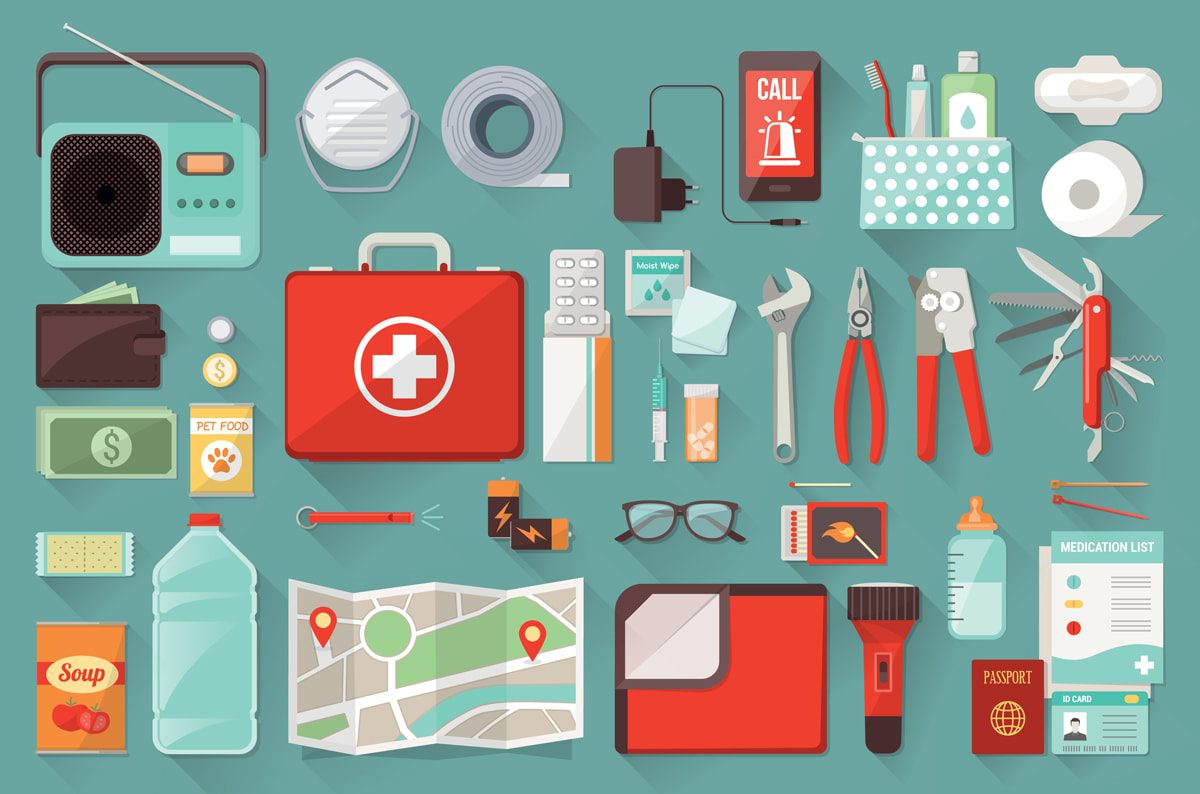In a way, auto insurance itself is a king of “emergency supply” that you turn to after an accident to cover medical expenses and property damage (whether yours or the other driver’s). It can also protect you against un-or-underinsured motorists who would leave you paying an “emergency bill” that you shouldn’t have to pay. Keeping things legal will avert the emergency of potentially severe court fines and penalties. And finally, your auto insurance roadside assistance number should be kept handy in your car, in case you break down, get a flat, or run out of gas in an inconvenient location.
Car Repair and Maintenance Emergency Supplies
The cause of an emergency while driving could be the weather or driver error, but it is often a matter of simple car repair and maintenance issues that occur at an inopportune time.
Include any or all of the following in your emergency supplies:
- Jumper cables. Be sure to test them periodically. Keep them in a sealed storage bag, and replace them if they get rusty.
- A spare tire or donut. A spare is safer and more convenient since a donut requires an urgent trip to the tire shop. A sturdy tire iron sized to your lug nuts, a sufficiently powerful and easy-to-use jack, and at least one jack stand should also be in your trunk.
- Extra fluids. Keeping an extra quart of oil, coolant, and brake fluid can sometimes save the day. Don’t forget the funnel either.
- A small fire extinguisher. A mini 2-pound extinguisher can fit safely in most cars and stay out of the way unless/until needed. Choose a dry powder model rated for vehicles, and use in case of fuel, electrical, or upholstery fires.
Survival & Other Emergency Supplies
Also to be included in your emergency supplies is a fully stocked first aid kit, which you should “inventory” and learn how to use ahead of time. Warm blankets, extra socks/clothes, bottled water, non-perishable foods/snacks, and rain ponchos will help you survive if stuck in harsh weather or for extended periods.
Also include:
- Sand or cat litter, a small folding-handle shovel, an ice scraper, and ice-melting wiper fluid (in cold climates).
- A small, battery powered fan (for hot climates).
- A flashlight with an unopened pack of batteries.
- Roadside flares.
- A one or two gallon plastic gas can.
And don’t leave home without your cell phone and car charger or without cash on hand to buy gas (in case your credit/debit card won’t work in a local blackout situation).
Keep all items that are part of your emergency survival kit in on location in your car. Protect them with a tough plastic bag or container that can be tightly sealed. Keep a list of all included items taped to the kit’s exterior.
Being prepared in every conceivable way for an auto accident, car trouble, weather too severe to drive in, or other emergencies that may arise while on the road will both make you safer and save you time/money. To learn more about preparing for auto emergencies or to get a free quote, contact Flagler County Insurance Agency.
